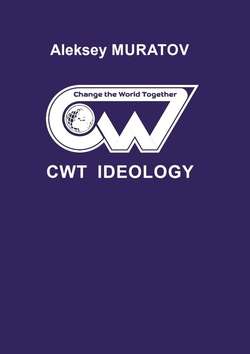Читать книгу CWT Ideology - Алексей Муратов - Страница 10
DOLLAR AND POLITICS
ОглавлениеIt is clear that these “bubbles” and the buying up of the world
for dollars has given the world’s elite almost unlimited financial
and administrative power and resources. This will continue as the
world plays by the rules of these robber barrons.
Charles de Gaulle —
the first knight for humanity against
the dollar in the 20th century
The US wishes for sole control over the global foreign
exchange market was transmitted to all the countries during the
Second World War. In April 1943 American experts launched
the global monetary system scheme. World War II was in full
swing. Great Britain, the Soviet Union and other participants in
the anti-Hitler coalition had to pay America gold for delivery
of arms, machinery, metals and food. Conventional bank notes
were worth almost nothing in wartime. The dollar had become
the equivalent of precious metals and the gold standard was
pegged on y to the dollar. Here are some figures: The gold
reserve of the United States was 13,000 tons in 1938, 17,700
tons in 1945, 21,800 tons in 1949. That was 70% of the world
gold reserve at that time.
On February 4th, 1965 the President of France, Charles
de Gaulle, told journalists at his regular briefing at the Elysee
Palace: “Truly it is hard to imagine any standard other than gold.
The international exchange has the highest law, the golden rule,
which is to be restored. It is an obligation to provide balance
of payments for various currencies by actual revenue and
expenditure of gold”.
After the creator of the Fifth Republic stopped talking, the
press representatives rushed out of the hall to nearby telephone
sets. Everyone understood that a war had been officially declared
– a war against the US dollar. De Gaulle proposed that the postwar
world financial redistribution in favor of the dollar as the
main currency not be accepted. He called back to the international
payments system effective before the World Wars. In other words,
he proposed to bring back the classical gold standard where any
currency had real value and was literally worth that value in gold.
De Gaulle did not intend to bring back the gold standard,
which would ensure the stability of the global financial system.
Quite the contrary, he was proposing a return to the role of gold
as the general equivalent. Americans were torn between the
Vietnam War and problems in the Caribbean, they hoped that
the anti-dollar rhetoric of the French leader would remain just
words. However, it did not go that way.
A secret report by famous economists Robert Triffin and
Jacques Rueff, prepared in 1959, informed General De Gaulle
that the forced participation of France in the so-called “Gold
Pool” was ruining the economy. The international structure of
the central banks of seven Western European countries under
the auspices of the Federal Reserve Bank of New York, which
included France, were acting through the Bank of England.
It was not only keeping the international price of gold at $35
per ounce (one ounce is equal to approximately 31 grams) for
the convenience of Washington but was also trading the gold
for their benefit and reporting monthly to the US financial
authorities. If they had to increase the selling volume of the
metal, the pool participants gave the Americans the gold
from their reserves. If the pool bought more than sold, the
difference was shared at a humiliating ratio: half was given
to the Americans, half to the others. France had 9%. Experts
reported to de Gaulle that the activities of the Gold Pool had
caused over $3 billion in loss to the Europeans.
General de Gaulle knew he irritated the US government,
particularly after France had accelerated development of its
own nuclear weapons program in the early 1960s. In January
of 1963 De Gaulle rejected the “multilateral nuclear force”
created by the Pentagon and he took back the control of the
Atlantic fleet of France from NATO. By that time only two
French divisions remained under the American command
instead of the fourteen that were agreed on. However, the
Americans never guessed that this was just the beginning.
In 1965 De Gaulle formally proposed to his American
counterpart Lyndon Johnson 1.5 billion dollars in cash from
the French state reserves to be exchanged for gold. Washington
responded that the US would regard such an action by France
as unfriendly and would have consequences. “Politics is
too serious a matter to be left to the politicians”, – retorted
the general and announced that France was walking out on
